00:00-2:36: Greetings! And ignore Jeff’s vanquished sigh at the very beginning of the episode: as Graeme quickly explains, it’s because we had been talking for close to half an hour *without it being recorded*, and so we’re starting over. From Scratch. Again. Yayyyyyyyy. But Graeme brings you up to speed, and resuscitates us all with his natural perkiness. Then before you know it we are off to talk about….Mike Deodato’s buttocks?
2:36-8:49: Yep, that’s right! Mike Deodato’s buttocks—and the rest of his crazy naked ass—made the news as he attempted to…body-shame the actor playing Namor in the new Black Panther movie?! It all seems a bit to ridiculous to be real, doesn’t it? To quote Jon Lovitz’s pathological liar character from SNL: “and yet it happened.”
8:49-37:16: “I’m kind of weirdly salty, Graeme,” announces Jeff in what may prove to the understatement of the episode, “because I read Batman: The Earth One Collection.” “It feels very much like something I would do,” adds Graeme. Why did Jeff read/re-read the three volume collection by Geoff Johns and Gary Frank? In part because wondering why he remembers so little of, in part because wondering what parts of it might’ve made in to The Batman, the Matt Reeves/Robert Pattinson joint. It takes us a while to get going on that side of the talk because we spend a certain amount of time catching up on what Johns is up to, his imprint plans for DC that seem right on the border of self-parodic, and but also we spend an embarrassingly long time trying to remember the name of the Image he did with Gary Frank. There’s a lot to unpack at least if, like us, you can’t seem to take an item out of the suitcase without identifying it first and neither of us can remember the word for “shirt.” I guess the real Batman: Earth One talk starts around the 16 minute mark or so…
37:16-47:40: Okay, so after Jeff moaning and groaning about Batman: The Earth One Collection, Graeme has some words about Flashpoint Beyond, a mini he’s five issues in on (of six!) and, as he puts it, “I have no idea what this comic is about.” (To be fair—or, I don’t know, unfair—we should mention here in the notes that Xermanico who we normally quite like is doing the art, and Johns is aided and abetted in the writing by Jeremy Adams and Tim Sheridan.) Johns and team make some very, uh, interesting storytelling choices, including spoiling the end of Dark Crisis (on Infinite Earths) before it’s been published. Come for the befuddlement, stay for Jeff digging the idea of a cold war happening within DC, with Johns taking revenge on DC for them letting the air out of the tires of his Doomsday Clock series, and John Le Carre-esque interoffice bureaucratic shenanigans! (Bureaucratic shenanigans are probably Jefff’s favorite because they’re the only kind so slow-moving he can keep up with them.)
47:40-52:21: Speaking of the Justice Society, Jeff didn’t know that the JSA was basically the heroes of two different comic companies teaming up until, uh, some spectacularly shady stuff happened…but Graeme does, and gives us the scoop (as well as lamenting the fact that one of the hands-down best books about the early history of the comics industry, Men of Tomorrow, was written by a convicted owner of child pornography).
52:21-1:07:30: Perhaps smartly turning away from the relatively dark cul-de-sac we had entered, Graeme asks, “Jeff, have you read something that you liked?” And the answer, of course, is yes but maybe a far more scattered one than Jeff would have liked—he shouts out Chainsaw Man, Even If You Slit My Mouth, Kaguya-Sama: Love is War—but pivots to talking about maybe having too many manga streaming sites and maybe how some of what he’s been liking is how he’s reading more than what he’s reading? This leads us to talk about Marvel Unlimited and the stuff we’ve both recently read on there—Jason Aaron on Avengers and Punisher, Zeb Wells and JR JR on Amazing Spider-Man—and how much we want it to scratch the itch and yet somehow isn’t quite? Related to that is Amazing Fantasy #1000 which Graeme read, wanted to not be underwhelmed by (I mean…Armando Iannucci writing Spider-Man, for Christ’s sake!)
1:07:30-2:24:22: Oboy. So here is where maybe things go off the rails…or not? Thanks to DCUI, Jeff is five issues into the Human Target mini by Tom King and Greg Smallwood—and oh my god, in a way I’m so sorry we will not be spending the next hour-plus talking about our mutual love, admiration, and awe for Greg Smallwood’s art here? It’s exceptionally gorgeous which we’ve both mentioned before and will again but never really quite dig into enough about just how *fucking* good it is? But no, instead, although it ramps up verrrry slowly, what emerges is one of our semi-annual fights about Tom King’s work, and how that fight—or so it seems by the end—highlights and/or possibly amplifies our different approaches to, I guess, this podcast? It’s a little hard to unpack here, so you just gotta listen. Oh, but I’ll probably talk about some of our major discussion shifts—like for example our discussions about what we both took away from Strange Adventures and Rorschach (and boy oh boy do I wish we’d had *that* discussion while both books were still fresh in my mind). Oh, and FULL SPOILERS for the sixth issue of Human Target which came out months ago but still is not on DCUI, and also spoilers for Strange Adventures and Rorschach! And good news, this is pretty much how the conversation goes for something like a full ninety minutes so….we’re sorry? (As Graeme would say.) Oh, and among other things, we have very different readings of this but it ties into the discussion so if you haven’t read it yet, that may clarify parts of our chat.
2:24:22-end: Closing comments! Read Volume 39 of Judge Dredd: The Complete Case Files and join us here in two weeks! Stitcher! Itunes! Instagram! Twitter together and separately: Graeme (and not a Twitter: Graeme at Popverse!) and Jeff! Tumblr, and on Patreon where a wonderful group of people make this all possible, including Empress Audrey, Queen of the Galaxy, to whom we are especially grateful for her continuing support of this podcast.
NEXT WEEK: Another fortnight wait? What? Drokk!!
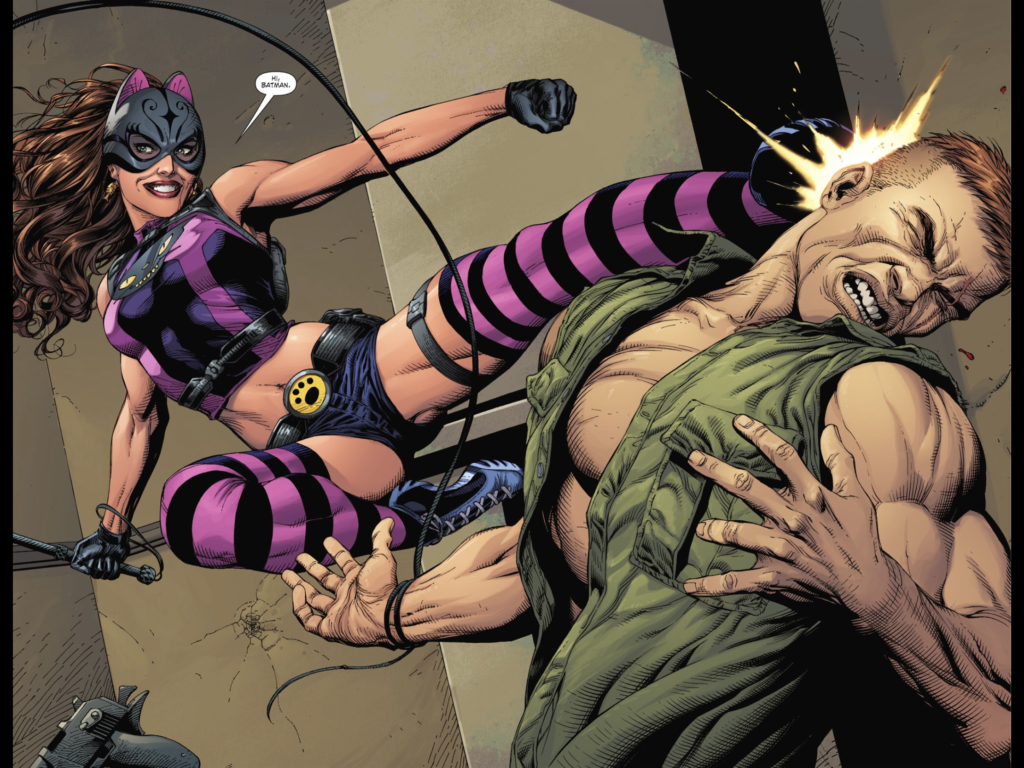
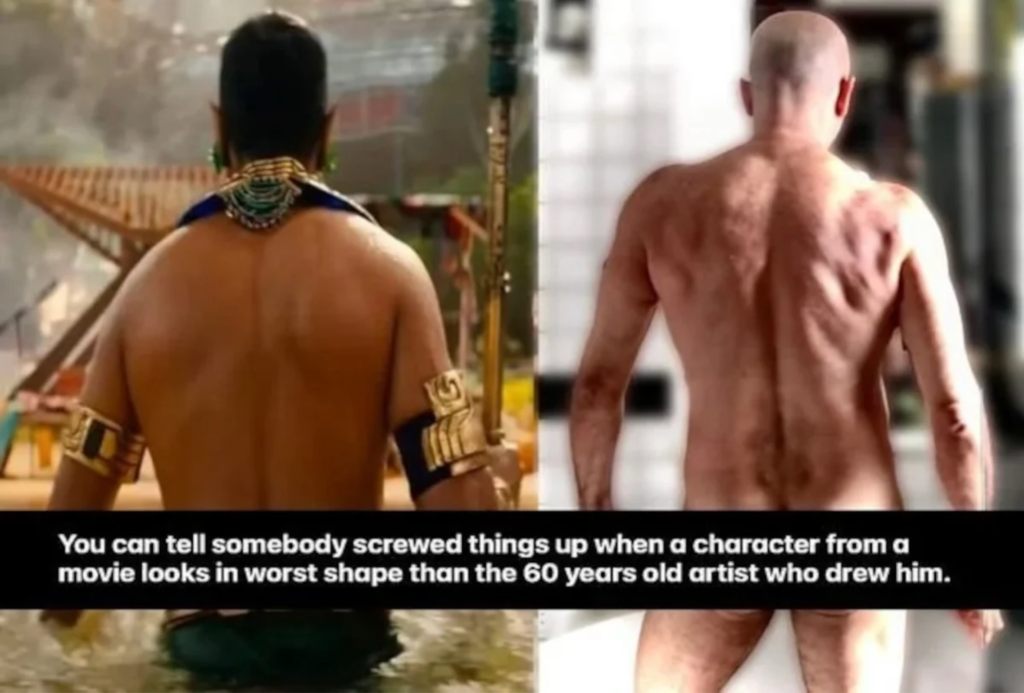
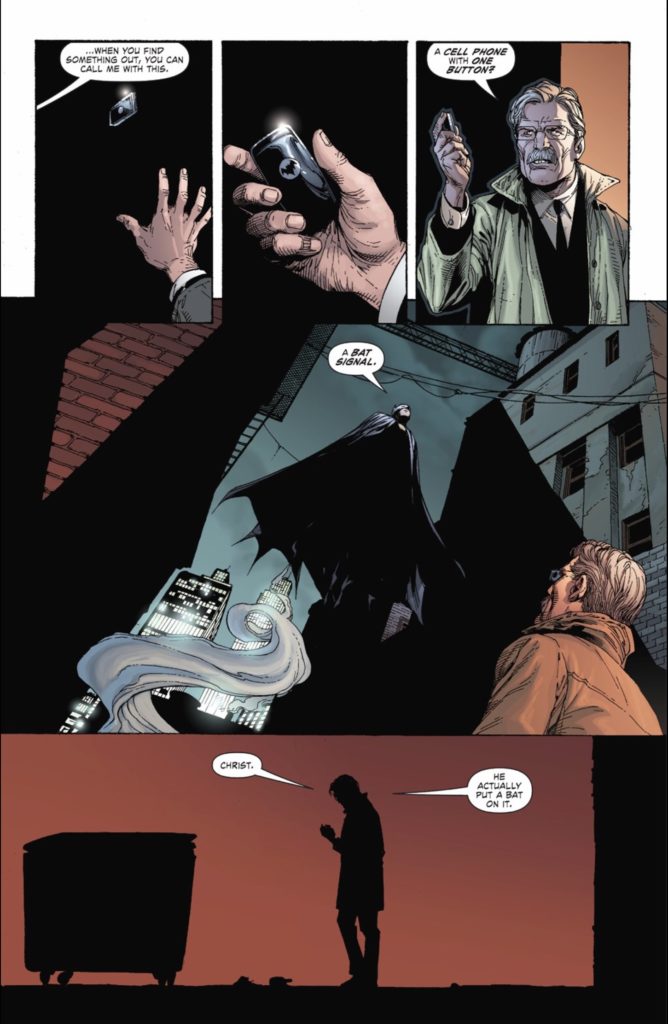
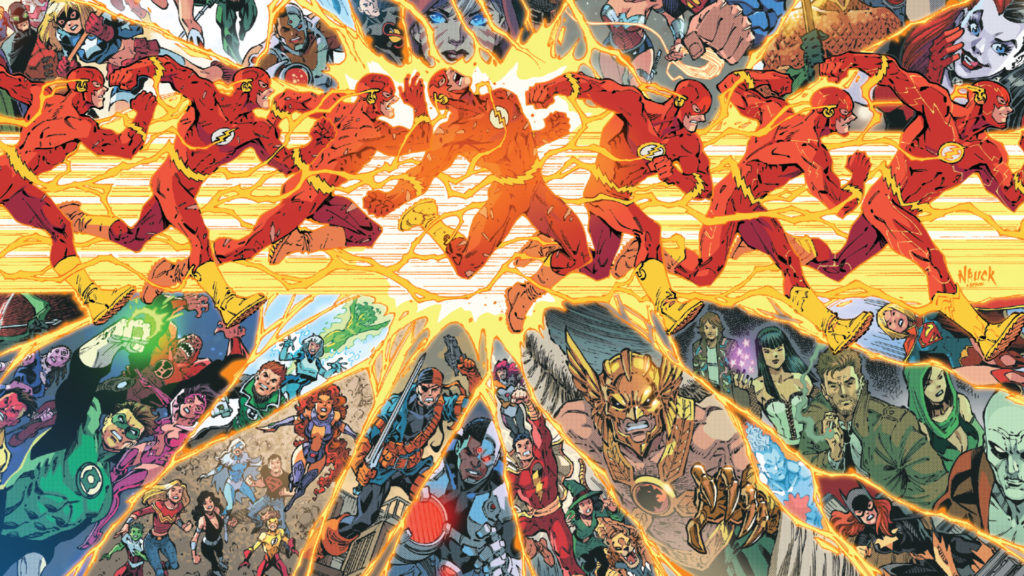
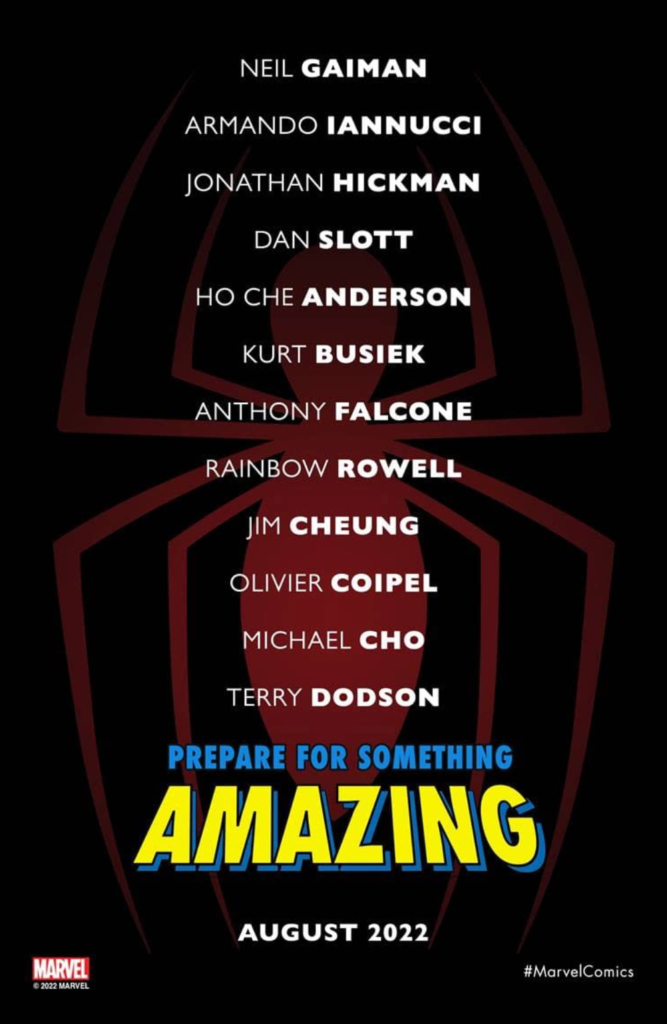
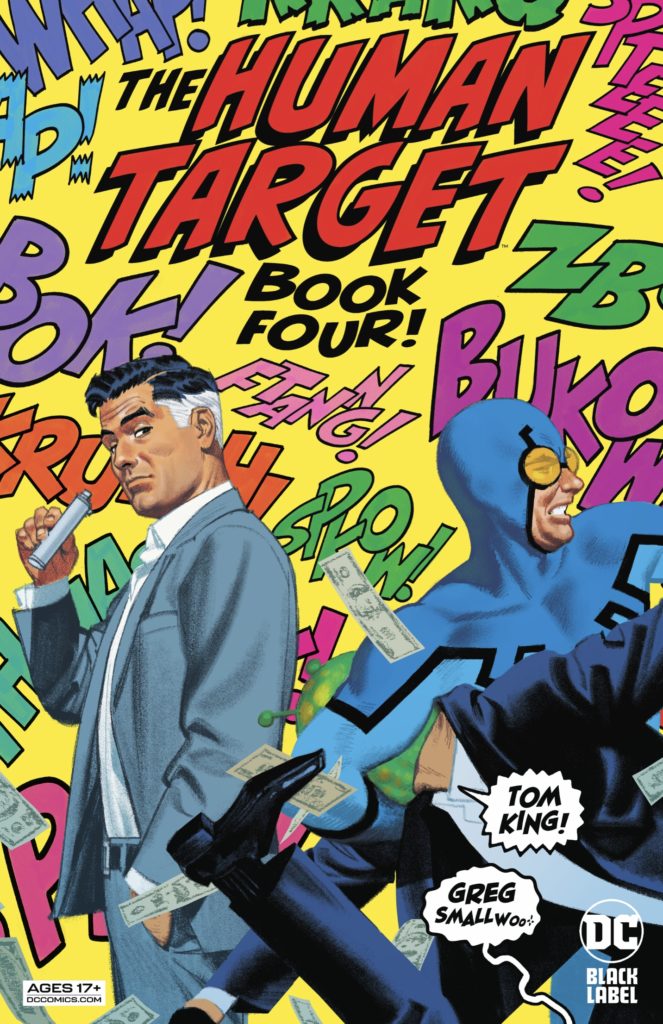


For all your cutting and pasting needs, visit Paul’s Boutique, that’s:
https://theworkingdraft.com/media/podcasts5/WaitWhat348.mp3
….in Brooklyn.
I hope we do get the Ducks discussion at some point (after the official release date, presumably). And I’ll recommend the currently-on-her-Patreon “If I Cannot Have My Own” while I’m here.
Your latest King-Size Special left me admiring your friendship more. I cannot remember the last time I argued with anyone about anything for this length of time. There’s a weakness in me where it’s difficult to continue for long after the first point where I believe I have not been understood. That, coupled with no need for the last word, makes me a brief arguer. You have enough confidence in each other to carru on at length.
I haven’t read Men of Tomorrow, but I did read the earlier book Jeff mentioned that Jones co-wrote with Jacobs. It had wonderful tales about the Golden Age of comics and I thought I was learning stuff about comics’ sordid beginnings. Then I read stuff they wrote about the plots of comics I’d read, like how the Black Racer was created by Darkseid, and I began to think I should forget those tales. I didn’t read MOT when it came out, despite the good reviews which often asserted it was wonderfully researched, because how would I know? Have people verified the research?
I think what Jeff is arguing about is that there is an emotional continuity to most characters, and regardless of continuity, that emotional continuity goes from each successive version of that character. For example, Frank Miller’s Dark Knight Returns is something that resonates enough that it follows the different versions of the character in Post-Crisis continuity and beyond. I think what Jeff’s anxious/annoyed about is that while this Human Target series is probably good, that it changes how people will perceive the characters and interpret the characters in the future, regardless of continuity. It feels like a waste, if the characters at the end turn on each other and all you’re left with another tainting of the JLI that treats them as criminals instead of, say, the joke that Geoff Johns treated them as before and during Infinite Crisis.
Sure that Catwoman costume is stupid but from your discussion I expected something much worse. For example the Ant’s costume from Image.
It strikes me that the disagreement between Jeff and Graeme comes down to whether twisting a character into a story is additive, either to the story (eg New Frontier, where the changes allow for a new perspective on the time period and its political and cultural significance), or to add to our understanding of the character (Batman in Dark Knight). Neither host suggests that there’s anything additive happening in Human Target, but it’s only vexing to Jeff.
One thing I wonder having not read the thing is whether King is playing with the idea that the bwahaha league was itself a response to the nearly contemporaneous Watchmen and Dark Knight, both of which reconfigured classic superhero characters along the lines of gritty, occasionally explicitly noir tropes. As paratext that’s cute, I guess, but if the execution doesn’t land it’s point (or if the exercise is sort of pointless, as in King doesn’t have a point of view so much as he has a neat idea), then you’re just going to get pointless ugliness .
I think I agree with Nate re: additive. I haven’t and will never read the comic in question (new Chainsaw Man is terrific though– the reintro of the character is *chef’s kiss*), and haven’t / will never read much from that particular author– but I feel like this is the old “Superhero Decadence” conversation, and one we had in its particular details already in connection with Countdown to Infinite Crisis (which may have come up the last time this comic was discussed– forgive my memory).
But the “ploy” of that comic was to take fun JLI characters and say “oh no what if they weren’t fun and charming what if childhood were over Bawitdaba-da bang-da-bang-diggy-diggy-diggy”– that was the comic that set off an era of bad “DC Comics… with an edge!”, the edge being the “you think these are kid’s characters you can laugh along with? Well they’re not– decapitations are happening” Geoff Johns house style. Cut to … wasn’t there a Teen Titans comic where the dog from the Superfriends cartoons ate his teenage friends??
I suppose we could say whether you find any pleasure in that mode is “purely subjective” but I find myself often sympathetic to the counterargument, that there’s something inherently tawdry about taking something originally designed to bring some tiny bit of joy to kids and re-using it for a sinister “reimagining” for adults. And I think the thought I had listening was that one has to look to whether / how / if that tawdriness is being addressed, whether there’s some sense of irony. Using Alan Moore as an example, I think there’s a stretch where he works with old characters (influenced by Brian Patten’s “Where are You now Batman”) where he’s trying to find some poetry or tragedy or irony by bringing children’s characters into his horror stories, but that it goes horribly wrong when he’s doing Killing Joke or the Twilight proposal, when he’s just doing the tawdriness without that self-awareness, without asking himself “what am I even doing” (and he’s spent years after apologizing for not having caught himself sooner on Killing Joke). But yeah: what Nate was saying re: “additive” because creators who’ve succeeded in that game have been essentially additive ones– in terms of opening aesthetic doors, even if nothing else.
Without that, the “who is this for and why did they need to see this happen” question– I don’t know how that doesn’t overwhelm any “entertainment value.” Maybe the comic in question has those qualities or not, but again, not for me to say. I know that the picture in my head of the Modern Successful DC Writer though is *not* an ironic or poetic creator but the “We Take This Most Seriously, We’re Crafting a Modern Mythology Here, All our Superheros Refer to each Other By Their First Names” guys. Long comics of superheros telling each other why they’re “important” super-fans. Which seems to me a project contra to addressing the tawdriness but instead one primed to exploit it out, out of one suspects is an unspoken shame (or worse, its utter absence) about working on children’s material in this fashion. Though that’s the old “superhero decadence” rhetoric and again one I can’t say I whole-heartedly agree with because at some point… X-Men becomes Chris Claremont’s X-Men and not Jack Kirby’s X-Men? At some point, these characters can be transformed. But… but again, see above re: additive, and I …. don’t see / understand /can’t-imagine what it adds to the JLI’s sitcom comedy characters to ask “what if they were murdering / being murdered / etc.”
Also, Jeff’s comparison of superhero comics to oral storytelling is spot on! In the pre literate world of oral storytelling, there was an extended apprenticeship for the storyteller, who as Jeff suggested was really an “interpreter” of tales as opposed to a creator. Innovations needed to be made judiciously, as these things weren’t written down. Thus the continuity of the tradition depended on a delicate balance of fealty to character and event and artfulness of delivery.
To paraphrase Walter Benamin, with every telling of a story a new layer is applied, and every variation becomes part of the tradition. These “colorings” accrue over time, and it’s appropriate to worry to about whether they maintain and enrich the tradition or scuttle it in an effort at novelty, or in the case of King (at least in the stuff I’ve read) preening concern with a specific kind of masculine interiority.
Getting back around to the question of criticism, and when we choose to pull threads, I think some texts have more threads to pull than others, and intellectually honest pulling can lead to reasonable and persuasive judgement about the aesthetic and social merits of the text. A lot of the hosts’ back-and-forth about criticism is really a back and forth about when and how to make that move.
In the case of King’s comics, it seems like the issue is that Jeff suspects there’s something genuinely toxic at the end of the thread but hasn’t quite gotten to it. But I think he’s close when he suggests that King isn’t a “team player.” Instead of “team player,” I’d say that King is not a good member of the interpretive community. Rather than adding to a tradition of storytelling he largely swans around, occasionally doing something formally interesting but usually just stepping on toes. It’s as if he went to a folk dance festival and, instead of putting his own spin on the traditional jig (or whatever) maintained the line just long enough to start doing interpretive modern dance. Note that the toxicity here isn’t the specific content so much as it is the tendency to treat a creative, collective tradition as mere opportunity for self-expression.
Anyway, this is almost certainly a thread kill, but the convo linked up to stuff I’ve been thinking about for work. Hopefully I’m contributing to the conversation, but if I’m not then at least I’m scoring points for irony!
Nate, just to make sure to kill the thread, let me chime in: thank you! This really put forward what I was thinking in a much more cohesive and coherent way. I really appreciate you and Abhay—two much smarter people than me—taking my points and expanding upon them. (I’m not thrilled to have Kid Rock stuck in my head these last few days but that’s Abhay’s fault, not yours.)
I don’t know what you do for work, but I am realizing this very different interpretation of the storyteller’s role is, for me, really worth thinking about as more and more of pop culture moves to the selling and reselling of familiar IP. The “interpreter of properties” replaces “the teller of tales.”
I’m glad Nate and Abhay were able to jump in with nicely articulated points. I do find it ironic that Graeme usually comes off as an Alan Moore detractor, and yet here he is an apologist for Tom King, the child playing dress-up in Alan Moore’s adult clothes. I do think Jeff had a fair critique there, even if Graeme took umbrage with his wording. Still, I could see arguments for both of your approaches here when it comes to criticism. However, I will say that if memory serves, Graeme gave almost the complete opposite argument when he (rightly) criticized Matt Fraction for his rationale for the out-of-character take on Spider-Man in the much maligned “Fear Itself.” I believe Fraction argued Spider-Man’s behavior was in character because *he* wrote it that way. I don’t want to put words in Graem’s mouth, but it felt like he was making the Fraction argument here, an argument he had previously rebuked.
While I can’t approach what Nate and Abhay were able to do, perhaps I might add a corollary. I think this very problem you bring up, and I’m so glad you tied it back to Batman: Earth One, appears in superhero comics as the converse too. The creators aren’t trying to subvert your expectations of historied characters so much as rely on them to do a lot of the heavy lifting. Is it any wonder why many of the Big Two writers fail at telling compelling, character-driven stories when they put out an Image book? It’s because of that lack of heavy lifting they can reliably outsource to the reader; in the absence of relying on 70 years of Batman history and multimedia interpretations, you’re left with just what is in the work itself, and that work is lacking. That could be the very reason Jeff finds himself bouncing off Jason Aaron’s Avengers. The Avengers of 1 million B.C. (or whatever random prehistoric date assigned to them) are not the Avengers you know, and, as such, Aaron has failed to make them compelling characters who can rise of above the pastiche/parody level of the characters who are their antecedents in both name and publication history. Too many superhero comics rely on the creators subverting your expectations of the characters or, more often than not, leaning on your expectations to tell the story for them.
At the risk of coming off snarky and as much as I enjoyed this debate between the two of you, I think it could have ended much earlier if you had just said it’s bad writing and left it at that. But then we wouldn’t have had a great show to listen to.
If I were to say something nice about Batman: Earth One, the books where Jim Gordon does some police brutality, there is one thing I did like. The portrayal of Killer Croc was pretty sympathetic, maybe more so than at any other time in history. Batman doesn’t judge him by his looks and assume he’s a criminal. He shows compassion toward him. If there had been more of that in the Earth One books, Johns could have written a subversive but compelling Batman tale. Alas, we’re left with tortue fiend Jim Gordon presented as someone we should idolize.
The Kids look like Mary Jane suggesting that they are somehow her kids with the new guy. The Peter plotline is weird but the Spidey stuff works really well for me. All of the Peter stuff is clearly made to be resolved in the Dark Web story at the end of the year and Maddie Pryor and Ben Reilly will be behind it somehow.
It has been a long time since Spider-Man has been about working-class problems or takes place in a working-class setting and I think that might be the element X that is missing from the character.
Rorschach and Strange Adventures, I essentially agree with Graeme’s take but with a twist:
— SPOILERS–
Alanna is the main character of Strange Adventures, not Adam Strange. She ghostwrote the Adam Strange biography as you find out at the end, so all of those parts are what she believed as Adam told her or her perceptions of things for the stuff she was around for. So the story of Strange Adventures is Alanna being broken of that narrative by Mister Terrific as she crafts a new narrative for America at the same time. She is the one controlling the narrative the entire time in the story. She is a liar who finds out the truth. I would say the counterpoint to Alanna is Mister Terrific who does convince Alanna through an emotional appeal. Adam is the subject of the story but is never the pov character.
Rorschach is about someone who does fall for the conspiracy by filling in the details of motivation himself. That he is a blank slate with a tendency to hallucinate only adds to how unreliable the conclusions The Investigator comes to are. He’s not wrong entirely but he’s off enough that it becomes a danger. The Investigator like Adam Strange is someone who lacks interiority. He is POV but we never access his life and so he is subject too.
The Booster Gold that is in The Human Target is very much the same Booster Gold in behavior as when he appeared in Batman and Heroes in Crisis. Booster Gold in those comics rankled me because it doesn’t sync up with the Booster Gold from 52 and the Johns/Jurgens series. But it doesn’t bother me in The Human Target, it just seems kind of clear that to King these characters took a different trajectory from JLI where their behavior is rooted. But in monthly Batman it just didn’t play? Honestly that kind of goes for most of the characters in Human Target who became dignified through comics like Green Lantern Corps. and Justice League Generation Lost. Even with continuity reboots that stuff was stuff I still read and its hard to reset my brain for the “monthly normal DC” no matter what I’m told. I can kind of approximate what Jeff is getting at but its hard to unabstract. These characters don’t exist in a vacuum and they carry different weights to different people and its all contextual to value placed x how they are being used, I guess.